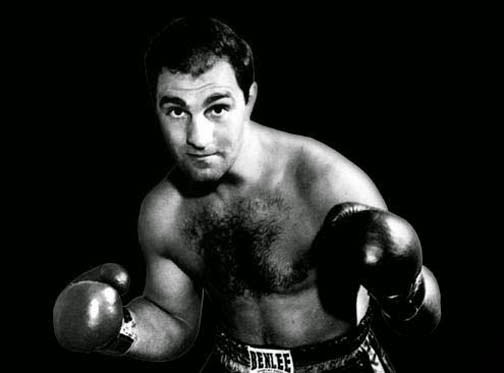James Scott Bell
@jamesscottbell
For years I’ve bought my Apple products at the big Apple store near my home. It’s located on the second floor of a large shopping mall. It majestically dominates the middle of the mall and, being near the food court and Coffee Bean, has arguably the best location in the whole place. There is even a walkway-bridge that leads strolling shoppers from one side of the mall directly over to the large, open and welcoming Kingdom of Jobs.
The other day my wife and I were walking through the mall when I spotted a sign alerting us that a new store had just opened. It too was located off the food court. I said, “Let’s go over there. I want to see it. It must be near the Apple store.”
Not just near, but directly across from the Apple store, at the other end of that same walkway-bridge.
You may have guessed that it was a new, gleaming Microsoft store.
You would be right.
I could not help noticing how, um, similar the store looks to Apple’s set-up. Lots of tables with laptops and tablets and phones. A help desk modeled after Apple’s Genius Bar. Sales staff in brightly colored tee-shirts like their counterparts across the way, complete with name tags hanging around their necks shaped the same as the Apple crew’s.
A year ago there was a story about Apple going after Microsoft’s bread-and-butter market, business. Now it seems Microsoft is giving Apple a run for its money in the consumer market.
The Microsoft space is just one third the size of the Apple store. But it has shown up. It is here.
Game on.
This is competition. For big stakes. Two giants battling it out.
Hmm, sort of like Amazon and (not Hachette this time!) HarperCollins. On Friday the publisher announced a new program for direct sales. HC already has an e-bookstore. Now they are offering this incentive for their authors: an added 10% royalty when they send customers to the publisher’s website to purchase the book (via “buy buttons” on their website or links on social media).
Game on.
Competition. It’s good. Because it generally makes the free market a better place for consumers.
It also makes for stronger writers.
I grew up playing competitive sports. It taught me some lessons that I’ve carried with me my whole life, including the writing part. Here are three:
1. There’s always somebody with more talent than you
You cannot change what talent or physiology you’re born with. When you get into competition you find that out pretty fast.
I was a great 6’3″ shooting guard on my high school basketball team. What I didn’t have was hops. I could not dunk. If I had been 6’9″, maybe I would have made it to the NBA. At my height, though, I didn’t have enough spring in my sticks. (Below is a picture of Taft High’s Jim Bell going in low for the layup).
So I determined to work as hard as I could with what I had. I managed not only to play at the college level, but for many years after that in leagues and pickup games, having fun.
Same with writing. What talent you have is not up to you. What is up to you is what you do with it. Do you want to be someone who writes and gets paid for it? Then work at your craft. It’s quite common that the harder worker overtakes the more gifted, but indolent, athlete. See Rose, Pete (look for him under “Baseball,” not “Gambling”).
2. When you play, play with all your heart
Once in the game, give it your all. Never quit.
In 1916, the Georgia Tech football team played little Cumberland College. The score was 63-0 after the first quarter. The final score was 222-0. Look it up.
At one point they found a Cumberland player wrapped in a blanket, sitting on the Georgia Tech bench. When they asked him why, he said he feared his coach would put him back in the game.
You’re going to suffer through disappointments. That’s part of the writing life. No matter how bad it gets, though, stay in the game. The great thing about writing is you are the only one who can stop you. So don’t stop you.
Desire and determination trump disappointment. Learn what you can from setbacks. Maybe you need to work on characterization, or dialogue, or plotting. There are abundant resources to help you in every single area. Join a critique group. Go to a conference.
Just don’t wrap yourself up in a blanket and never play again.
3. Your ultimate competition is with yourself
You should not waste any time comparing yourself to other writers, envying their successes (or, secretly, hoping they fail). Wasted energy. Sure, entering your book in an awards competition stacks you up against other colleagues. But don’t let losing (or even winning for that matter) mess with your head.
Instead always concentrate, with all your creative might, on the page in front of you, every writing day.
And forget about luck. I don’t believe in believing in luck. Guys who believe bad luck is the reason for not making it are like that geezer with three-days’ growth of beard at the end of the bar. “I coulda been a contendah, but da breaks wuz against me!”
What good does that do?
Keep fighting.
Rocky Marciano was one of the greatest boxers of all time. Won the heavyweight championship of the world and never lost a fight his entire professional career.
But his start was not so promising. Marciano, nicknamed the Brockton Blockbuster because in his youth delivered big blocks of ice for the Brockton Ice and Coal Company, had incredibly strong arms. But those muscles were heavy, and the muscles used to hold his arms up were not as developed.
The result was that after a few rounds Marciano’s arms began to sag, giving his sparring partners greater access to his face.
Instead of quitting, Marciano came up with his own training routine. He went to the local YMCA pool and practiced
throwing punch after punch underwater. He got a heavy bag that weighed 180 pounds (most heavy bags weigh about 50). He threw punches at that bag for hours…with bare fists. Needless to say those fists became solid granite and his arms become pile drivers.
The result? Marciano’s record was 49-0, 45 by knockout.
He once said, “I was willing to make sacrifices. Even while traveling, when there were no facilities. I would spend hours in my hotel room working on my strength. I wanted more than anything to be a fighter. Then I wanted to be a good one, and after that a great champion.”
What do you want, dear writer? What are you willing to sacrifice?
Not everyone is born with an iron will. But you can develop it. If you take baby steps every day –– writing, studying, editing, writing some more –– soon you’ll be making longer strides.
There’s an old saying in boxing that you have to keep punching, because you always have a puncher’s chance.
So when you get knocked down get right back up. Keep punching that keyboard. You always have another chance.
How would you rate your determination level? How do you handle disappointment?




